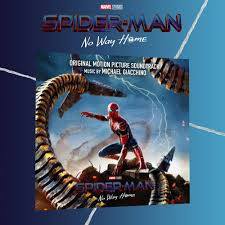The Significance of Spider-Man: No Way Home in Cinema

Introduction
Released in December 2021, Spider-Man: No Way Home quickly became a cultural phenomenon and a pivotal chapter in the Marvel Cinematic Universe (MCU). The film, directed by Jon Watts, highlights Peter Parker’s struggle with heightened fame and the ramifications of his superhero identity. Its relevance extends beyond mere entertainment, as it explores themes of consequence, redemption, and the interconnectedness of various timelines within the multiverse.
Main Body
The narrative picks up precisely where 2019’s Spider-Man: Far From Home left off, depicting Peter Parker’s (played by Tom Holland) life turned upside down with his identity as Spider-Man publicly revealed. Seeking a solution to his troubles, Peter turns to Doctor Strange (Benedict Cumberbatch) for help. However, the spell goes awry, opening the multiverse and causing various past villains, including Green Goblin (Willem Dafoe) and Doctor Octopus (Alfred Molina), to enter his universe.
This unexpected narrative twist crucially links together different Spider-Man franchises, allowing former actors Tobey Maguire and Andrew Garfield to reprise their roles as Spider-Man from previous Spider-Man series. This universal crossover not only delighted fans but also paved the way for a better understanding of the multiverse concept, which is integral to upcoming MCU projects.
Spider-Man: No Way Home broke box office records, grossing over $1.9 billion worldwide, making it one of the highest-grossing films of all time. Its commercial success attests to its powerful connection with audiences, further solidifying Spider-Man’s position as an enduring cultural icon. Furthermore, the movie received critical acclaim for its emotional depth, character development, and impressive visual effects, solidifying its place in cinematic history.
Conclusion
Spider-Man: No Way Home is more than just a superhero film; it’s a landmark entry in the MCU that redefined what is possible within the genre. As Marvel continues to explore themes of the multiverse, the narrative elements introduced in this film are likely to resonate in future projects, paving the way for new stories and characters. For fans and casual viewers alike, No Way Home signifies not only a thrilling cinematic experience but also an innovative exploration of nostalgia and shared history in the evolving landscape of superhero storytelling.








